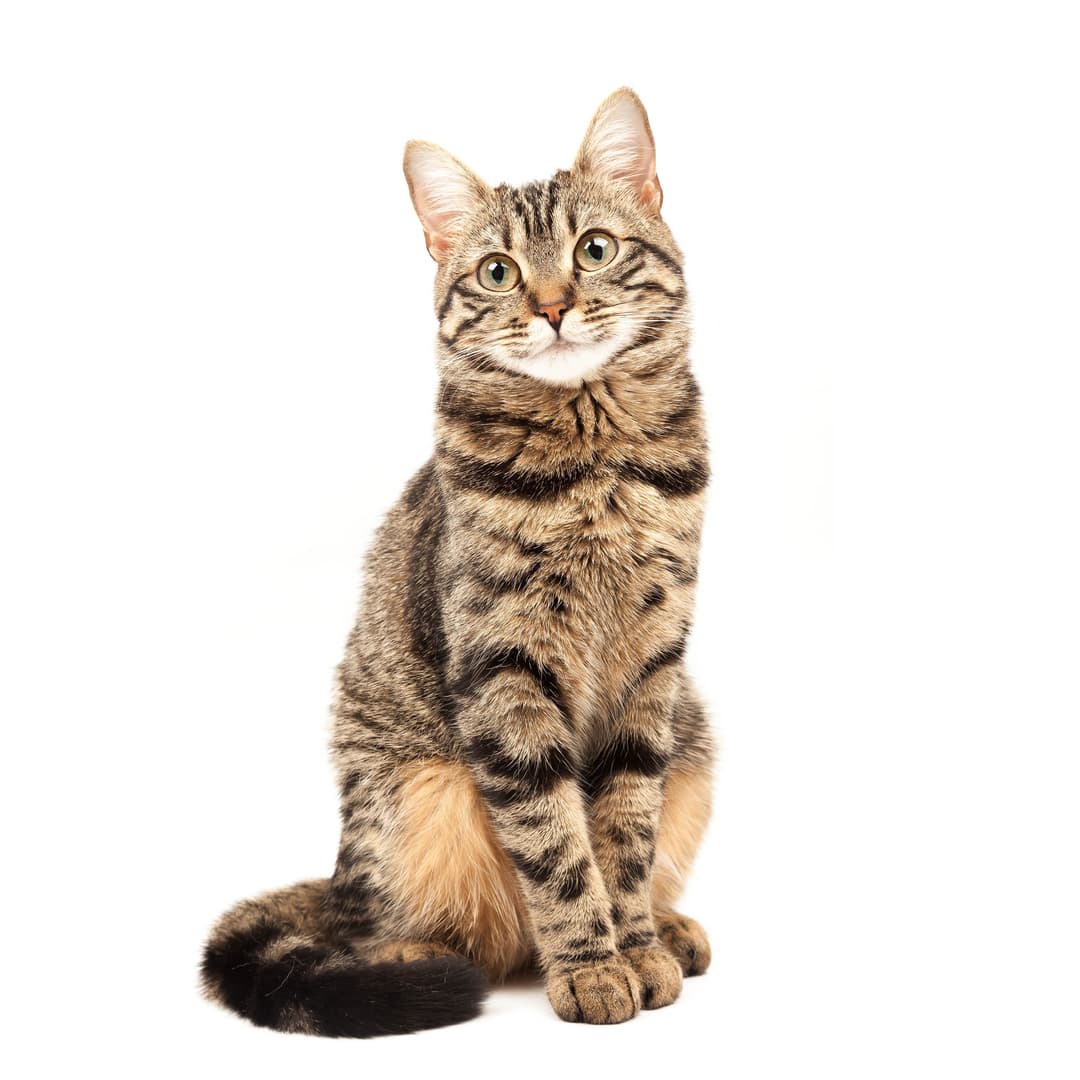Discover your cat's connection to this breed and 20 others


Discover your cat's connection to this breed and 20 others



The domestic shorhair cat is not a recognized breed with gilded papers, but is rather a cat of mixed ancestries. Here at Basepaws, we affectionately call them Domestic Polycats - because why do purebreds get to have all the cool names? Domestic Polycats are domestic cats of (yet) unknown origins.
The beauty of the Domestic Shorthair breed lies in its diversity. They come in all colors, patterns, shapes, and sizes. Typically, a Domestic Shorthair is a medium-to-large sized kitty that often has a round head, medium-long tail, and round paws. Males are generally larger than females and have broader heads. They have dense, sleek coats that vividly vary in color and pattern. Main coat colors include white, black, red, grey, brown, cream, cinnamon and fawn, and some commonly observed patterns in Domestic Shorthairs are solid, bicolor (i.e. tuxedo), tricolor (calico), colorpoint, tabby and tortoiseshell.
A Domestic Shorthair/Polycat is a remarkable result of many generations of mixed breeding between different types of cats, which is why the ancestry and origin of these kitties can be very difficult to determine. According to ancient feline DNA analysis, domestic cats are likely descended from the African wildcat (lat. Felis silvestris lybica) (Ottoni et al, 2017) found to be living several thousand years ago. However, most domestic breeds are less than just 100 years old, which is far from ancient royalty. This means that all modern domestic cats, including purebred cats (hybrids, excluded), have Domestic Polycat origins. In fact, out of all the cats in the world, most are actually mixed-breed Domestic Polycats!
When Basepaws analyzes your cat's DNA, we look for sequences your kitty has in common with the purebred cats in our database. We record the number of similarities and then use this value to determine how similar your cat's DNA is to each breed. Cats within one particular breed share more DNA with each other than with other domestic cats, but there is still a high level of diversity and variation in each breed. We mark the sequences of unclear origin as domestic polycat sequences.
Since the Domestic Shorthair breed is really comprised of many different breeds mixed together, their personalities vary widely. However, many are known to be fun-loving, people-oriented, and loyal cats that enjoy spending time playing and engaging with their favorite family members. This breed is truly a mixed bag of personality and character, so it's always an adventure getting to know your sweet Polycat kitty!
Domestic Shorthair/Polycats are genetically a very diverse group of cats. A rich gene pool positively affects their health and physique. In comparison to some domestic breeds with lower genetic diversity, Domestic Polycats are generally less affected by genetic diseases and disorders. Some conditions more commonly seen among the cats of this group are diabetes, chronic kidney disease, cancer, and hyperthyroidism. The average lifespan of a domestic polycat is ten to fifteen years. Domestic Polycats are known to enjoy their food perhaps a tad too much. These lovely companions tend to overeat, which makes them prone to obesity. Obesity will negatively affect your cat's health and can make them more susceptible to certain diseases, such as diabetes. To keep your kitty on the healthy side, make sure to feed them a high-quality diet, according to their caloric needs.
They have a kaleidescope color pallette of eyes. Domestic Polycats have vivid and captivating eyes which come in a multitude of beautiful colors as well, varying from shades of blue and green shades to brown and gold. With a little bit of meowgic and luck, your domestic polycat may even sport two differently colored eyes. If this is the case, you've got yourself a very special odd-eyed cat!
Domestic Shorthairs, aka Polycats, are domestic cats of (yet) unknown origins. While other terms that refer to mixed breed cats of unknown origins already exist, we felt that these terms largely represented initial impressions based on physical characteristics, and were then no longer pursued. We believe that this is an unfair representation of these cats’ unknown genetic portions which we’ve sequenced. These unknown sequences, or domestic polycat sequences, represent opportunities to learn more about the natural selection and evolution of cats and cat breeds in the past, as well as the genetic impacts on future health.
Recommended by top vets with decades of experience
21 breeds
64 genetic health markers
50 genetic trait markers
